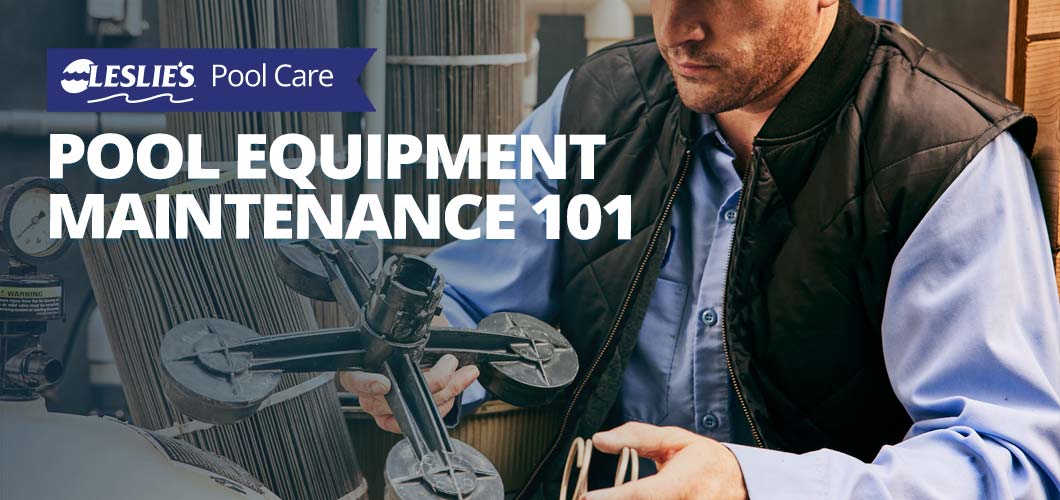
Pool Equipment Maintenance 101
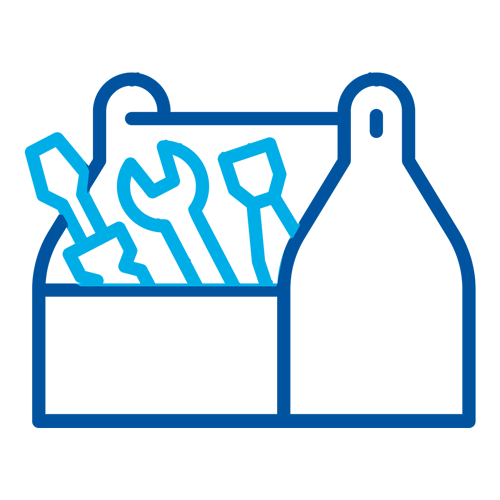
You regularly clean, balance, and sanitize your pool to maintain sparkling water that's safe for swimming. But when was the last time you took care of your pool equipment that’s responsible for keeping it that way? Just like your automobile needs oil changes, tire rotations, and other routine maintenance, your pool equipment requires diligent upkeep so it can stay in peak running condition.
But don’t worry, you won’t need any special training to handle these basic pool equipment maintenance tasks — these are things most anyone can handle themselves. And the best part is, if you’d like professional assistance in keeping your equipment up and running, the experts at Leslie’s are always here to help!
Below, you’ll find a few of the most common maintenance tips pool equipment manufacturers recommend for swimming pool owners.
PRO TIP: Your wall skimmer plays a vital role in maintaining your pool equipment. Clean out the skimmer basket at least a couple times each week, and check it more often after stormy weather or if you have a lot of trees or leafy plants in your yard. Also, make sure the water level in your pool stays about halfway up the skimmer to prevent air from getting into the system. While you're at it, inspect the floating weir gate — it should move up and down with the water flow. If it gets stuck in the up position, it can cause water flow issues.
Pool Pump Maintenance Tips
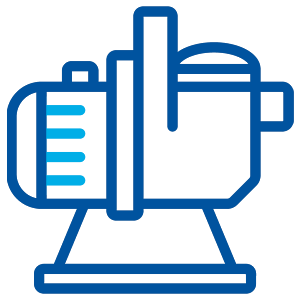
Your pool pump is the beating heart of a healthy swimming pool. If it’s not pumping water to keep it circulated, your pool will quickly turn into a murky mess. Regularly servicing your pool pump will keep it in top shape.
- Regularly check and clean out the pump strainer basket at least once every week or so to prevent obstructions, which can strain your pump motor. DO NOT strike the basket or tap it against the deck — doing so can damage it, requiring replacement.
- If the pump lid develops cracks, replace it promptly.
- Keep the pump lid O-ring or gasket lubricated with a suitable Teflon-based pool lube to ensure a tight seal.
- Listen for odd noises, and troubleshoot as necessary to resolve the problem. Rattling, squealing, whistling, and abnormal humming can alert you to problems within the pump.
- Visually inspect the pump, looking for signs of water leaks. Air pockets under the pump lid can indicate an air leak on the suction side.
- Keep the area around the pump clean and tidy, and ensure the vents aren’t obstructed or caked with dust and dirt. Air flow is important to keep the pump motor from overheating.
- Most modern pool pump motors have self-lubricating motor bearings. In this case, no lubrication is necessary.
- The pump shaft seal is water cooled. Because of this, it's important to monitor your pump and make sure it doesn't run dry, as this can cause the pump to leak and ruin the motor.
- If you’re mechanically minded and comfortable making DIY repairs, it’s a good idea to keep a spare shaft seal and O-ring kit on hand. It’s not a matter of IF your pump will ever need these items, but WHEN.
Automatic Pool Cleaner Maintenance Tips
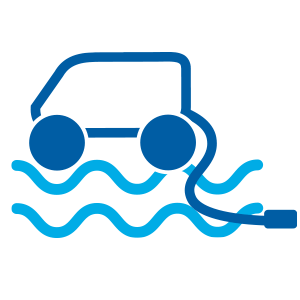
Pool cleaners do all the hard work, so you don’t have to! But when they’re not maintained correctly, they can damage your pool or not work at all. These are a few things to keep in mind while servicing a pool cleaner:
- The more moving parts on your cleaner, the more opportunities for a breakdown. Keep a close eye on cleaner functions, and replace worn or faulty parts as soon as you notice a problem.
- Plastic or rubber parts in contact with pool surfaces tend to wear out more quickly than other parts of your cleaner. Things like wheels, tracks, feet, brushes/scrubbers, wings, and sweep tails may require more frequent replacement.
- Clean out the debris bag or filter basket daily (if applicable) to keep your cleaner working efficiently. If using a suction side or pressure side cleaner, keep an eye on filter pressure, and clean or backwash the filter as needed.
- Damaged hoses (suction or pressure) can lead to reduced or nonexistent cleaning power. Routinely inspect the cleaner hose, and replace it if you notice cracks, holes, or crimped areas at risk of leaking.
- Don’t leave the cleaner in the pool. Although they’re made to be in the water, there are several reasons why you shouldn’t leave your cleaner in there all the time. You can learn more about those reasons, as well as a few other pool cleaner maintenance tips, in our blog post: Can You Leave Automatic Pool Cleaners in the Pool?
PRO TIP: With Leslie’s, servicing your pool cleaner is simple. All you have to do is bring it to the store. We offer FREE pool cleaner inspections, as well as FREE labor if it requires any repairs. The only thing you’ll pay for are the replacement parts. It’s a hassle-free way to get a tune-up and keep your pool cleaner running smoothly!
Pool Filter Maintenance Tips

The nice thing about pool filters is they don’t require a ton of equipment maintenance. But it’s important to keep up with routine care and cleaning to help your filter work efficiently.
- Regularly check the pressure gauge on your pool filter. If it’s 8–10 psi higher than your starting “clean” pressure, it’s time to clean or backwash your filter media. Always refer to manufacturer instructions for more detailed information, as some manufacturers recommend different pressure ranges before cleaning the filter.
- If your pressure gauge gets stuck in one position, or it gives inaccurate readings, it’s time to replace it. When the pump is turned off, the gauge should read "0." If not, replace it.
- In addition to routine filter cleaning, we recommend using chemical cleaners to remove oils and scale buildup from your filter media, which will help it last longer. There are cleaning products for cartridges, DE grids, and various types of sand filter media.
- Replace filter media as needed to maintain peak filtration. Some types of filter media will last longer than others. You can find more information in our Filter Media Comparison Guide.
- Pool filter gaskets and O-rings will dry and crack over time, leaving you at risk for water leaks or poor filter function. Make sure rubber gaskets and O-rings stay well lubricated, and keep a spare O-ring kit on hand for your pool filter, just in case you need to replace any of them.
- Keep an eye out for signs of damaged filter components, such as DE powder or sand ending up in the pool, or ineffective filtration in general. Inspect the filter internals and replace broken parts as needed.
Pool Heater and Heat Pump Maintenance Tips
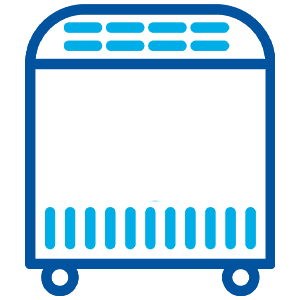
Got a heater or a heat pump for your swimming pool? Heated water can add weeks of extra swimming time at the beginning and end of pool season. However, maintenance is key, as heated water also brings its own set of challenges for pool equipment.
- Keep the area around your heater or heat pump free of plants and debris, and clean off any leaves or debris that falls on top of it.
- Ensure all vents are clear, and there’s opportunity for sufficient air flow around the unit.
- Routinely clean out the cabinet of your heater. Small rodents love to hide inside and make their nests, especially when the weather turns cool. They also like to nibble on the heater wiring, which can leave you without a heated pool.
- Closely inspect the pilot and burners to ensure they’re clean and in good working order. Also keep an eye on the burner tray and top of the heater. If you notice signs of soot buildup or discoloration, refer to your product manual for maintenance instructions.
- If you have a heat pump, periodically clean the fins by removing the exterior panels and gently spraying down the evaporator coil(s) with water from a garden hose. Use caution to not damage the delicate structures. Also check the condensation drain holes at the bottom of the unit to ensure they're not plugged with dirt and debris.
PRO TIP: Maintaining proper water balance is important for all pool equipment, but especially heaters. It's also true for the plates inside saltwater chlorine generators, which produce a small amount of heat as they generate chlorine through electrolysis. Heat and a high pH increase the propensity of calcium to fall out of solution, mineralize, and adhere to equipment surfaces. The rate of corrosion of your metal equipment parts will also increase if the pH is imbalanced.
Saltwater Chlorine Generator Maintenance Tips
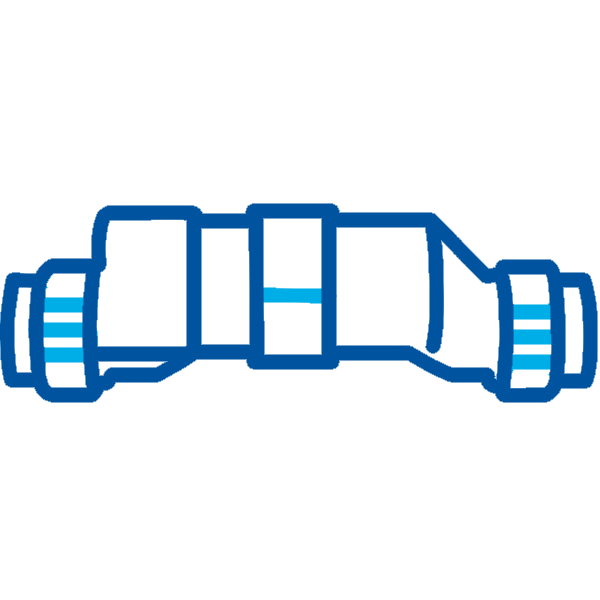
Salt pools have been steadily gaining popularity in recent years. However, because of the nature of salt water and the way the chlorine generator cells work, routine maintenance for this piece of equipment is an important part of owning a saltwater pool.
- At least 2 or 3 times per year, clean the salt cell to ensure continued chlorine production efficiency and overall function. You can find information on how to do this in our blog, Salt Cell FAQ.
- To help prevent or reduce the rate of scale formation on the plates, maintain proper water balance, and use Leslie’s Stain & Scale Prevent to help keep calcium suspended in the water.
- Ensure the unions are fully sealed to prevent water leaks. If leaking, replace the union nut, O-ring, or consider purchasing a replacement cell if the threads are worn.
- Keep an eye on chlorine production to know when it’s time to replace your salt cell. Most cells are good for about 3–7 years, depending on water chemistry, product quality, run time, and the level of routine care and cleaning you provide.
- Don’t forget to check the salt levels in your pool! A pool that doesn’t have enough salt results in the chlorine generator cell working harder than necessary, which can shorten its lifespan.
- Pay attention to the weather. Water that’s too cool won’t allow efficient chlorine production, which can lead to a shorter lifespan for your chlorine cell. When the temperatures drop below the manufacturer’s recommended levels, either turn off the cell or temporarily replace it with a dummy cell. You’ll need to use regular chlorine while your generator cell is off.
PRO TIP: Keep in mind that chlorine generators only work when the pump is running. If your chlorine level is chronically low, the first thing to check is whether your pump is running long enough each day. If you have a variable speed pump, make sure the speed is high enough to allow your cell to operate. Some cells require a minimum of 1,750–2,000 rpm to even turn on.
Need Help? Ask Leslie’s!
Whether you’re performing routine maintenance on your pool equipment or troubleshooting a myriad of issues, you can breathe easy knowing you have Leslie’s in your corner. As a trusted repair center for most major pool equipment brands, we’ll help you keep your pool equipment running with maximum efficiency. From our array of at-home services — including new equipment installations — to our complimentary in-store services like free pool cleaner inspections and free in-store repair labor, we’ve got you covered. Call or stop by your local Leslie’s today to learn more.